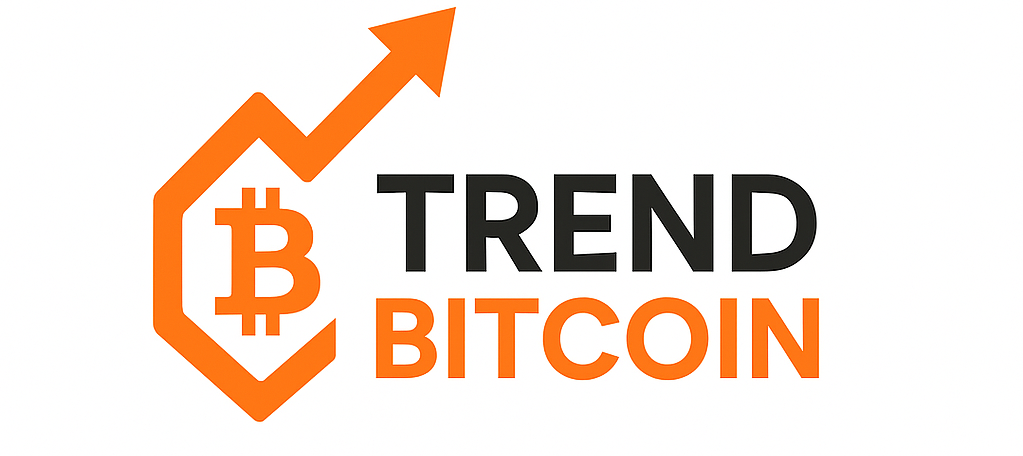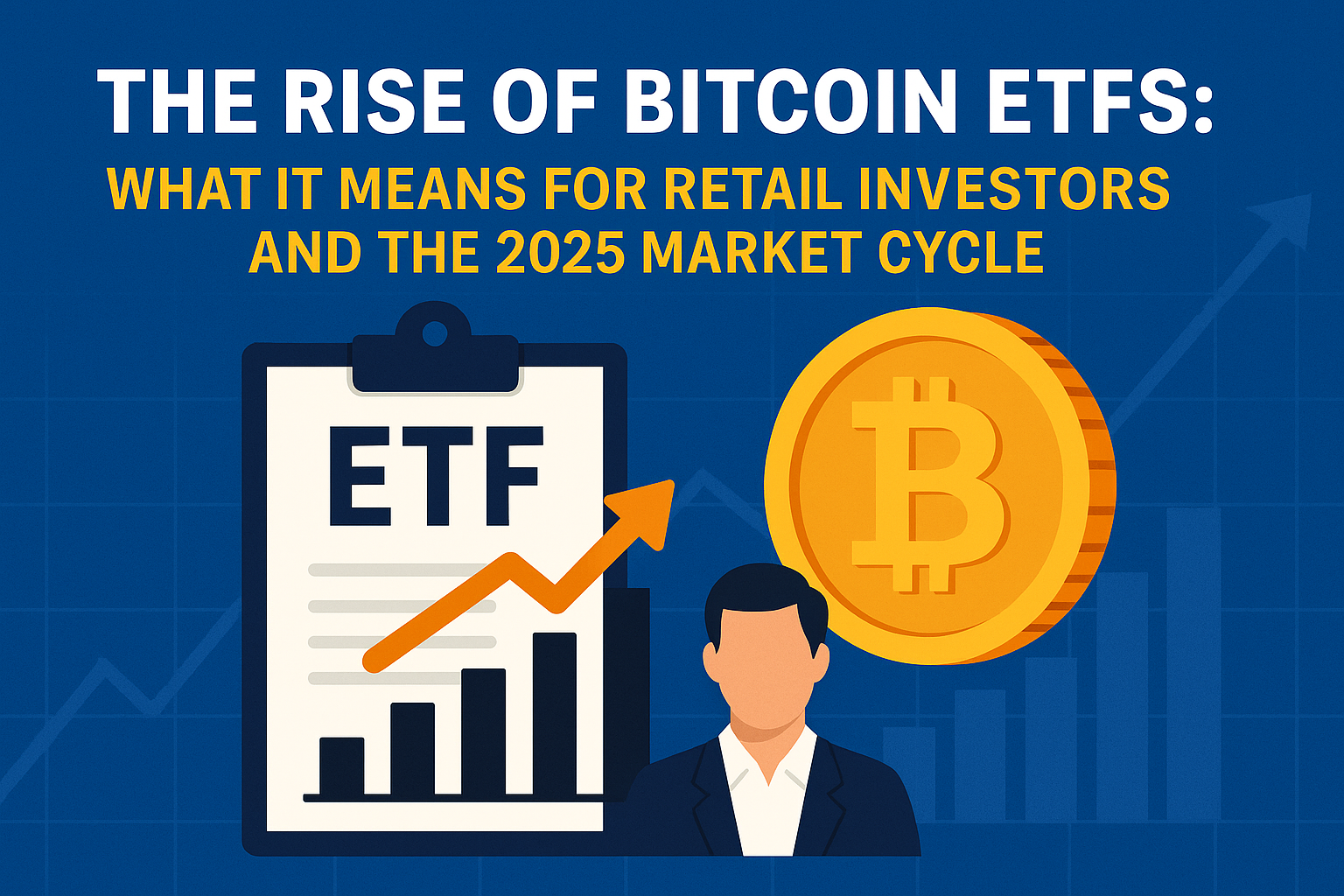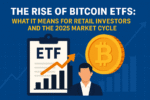The cryptocurrency landscape has evolved rapidly in the past few years, and in 2025, one of the most pivotal changes reshaping the market is the mainstream acceptance of Bitcoin Exchange-Traded Funds (ETFs). With several Bitcoin spot ETFs gaining traction and institutional money flowing in at record rates, both new and experienced investors are asking: What does this mean for me? Is now the right time to invest in a Bitcoin ETF, and how does it compare to holding Bitcoin directly?
This article breaks down the rise of Bitcoin ETFs, how they work, what sets them apart from other investment vehicles, and how they may influence the Bitcoin market cycle in 2025 and beyond.
What Is a Bitcoin ETF?
A Bitcoin ETF is a publicly traded fund that tracks the price of Bitcoin. Instead of buying and storing Bitcoin yourself, you can buy shares of the ETF through your brokerage account, just like you would with stocks or traditional ETFs.
There are two primary types:
- Futures-based ETFs: These track the price of Bitcoin futures contracts rather than the actual spot price.
- Spot ETFs: These hold actual Bitcoin and track the real-time market price. Spot ETFs are considered more accurate and are gaining regulatory approval across multiple countries.
With the SEC approving multiple spot Bitcoin ETFs in late 2024, retail investors in the U.S. finally have a more direct and secure way to gain exposure to Bitcoin without the complexity of crypto wallets or exchanges.
Why Are Bitcoin ETFs Gaining Popularity in 2025?
1. Institutional Adoption
The approval of spot Bitcoin ETFs led to a wave of institutional investment. Major asset managers like BlackRock, Fidelity, and Vanguard have launched their own ETFs or included Bitcoin ETFs in diversified portfolios.
This legitimacy boosts confidence in Bitcoin among traditional investors and retirement fund managers.
2. Simplified Access for Retail Investors
Buying and storing Bitcoin on crypto exchanges can be intimidating, especially for newcomers. ETFs remove the barrier of self-custody, seed phrases, and navigating complex exchanges.
With ETFs, investors can gain Bitcoin exposure directly from their brokerage account (e.g., Charles Schwab, Robinhood, Fidelity), often in tax-advantaged retirement accounts.
3. Regulatory Clarity
2025 has seen an increase in regulatory clarity for cryptocurrencies. Countries like the U.S., Canada, Australia, and parts of the EU have rolled out more comprehensive frameworks that make it easier and safer to invest in digital assets.
This regulatory support gives investors peace of mind and reduces the perceived risks of entering the crypto market.
Spot ETF vs. Holding Bitcoin Directly: Pros & Cons
Spot Bitcoin ETF: Pros
- Easy to buy/sell through brokerage platforms
- Can be held in tax-advantaged accounts like IRAs
- No need to worry about wallet security or private keys
- Backed by custodians with institutional-grade security
Spot Bitcoin ETF: Cons
- You don’t actually own Bitcoin (no on-chain ownership)
- Can’t use your Bitcoin for DeFi, staking, or yield generation
- Management fees may apply
- Price may deviate slightly from actual BTC due to NAV and liquidity
Holding Bitcoin Directly: Pros
- Full control and true ownership of your assets
- Can use in DeFi platforms, lending, and other Web3 applications
- No management fees
Holding Bitcoin Directly: Cons
- Higher technical complexity (wallets, keys, security)
- Risk of losing funds through theft, hacks, or user error
- Not easily integrated with traditional financial systems
For most retail investors, a Bitcoin ETF offers a safer and simpler gateway into crypto. However, more experienced users or those seeking DeFi opportunities may prefer direct ownership.
How Bitcoin ETFs Affect the 2025 Market Cycle
Bitcoin operates in historically consistent 4-year cycles driven by its halving events. The most recent halving occurred in April 2024, reducing the block reward from 6.25 to 3.125 BTC.
Historically, each halving has triggered a bull market within 12-18 months. This cycle, however, is seeing something new:
Inflow of Institutional Capital
ETFs are bringing billions of dollars into the market from retirement funds, hedge funds, and institutional investors. This liquidity increases Bitcoin’s price stability and reduces volatility over time.
Price Suppression or Acceleration?
Some analysts believe ETFs could suppress retail-driven price spikes by distributing BTC through controlled fund flows. Others argue that the constant demand from ETFs will push BTC into uncharted territory.
Supply Shock Amplified
With ETF custodians holding massive amounts of BTC and supply issuance halved, we could be heading toward a supply crunch. If retail and institutional demand continues rising, this could drive prices higher faster than previous cycles.
Should You Invest in a Bitcoin ETF in 2025?
Yes, if you:
- Are new to crypto and want easy exposure
- Prefer managing investments through a traditional brokerage
- Want to diversify your portfolio with an asset uncorrelated to equities
- Plan to hold long-term in a tax-advantaged account
Maybe not, if you:
- Want full control of your Bitcoin and to use it in DeFi protocols
- Are comfortable with managing hardware or cold wallets
- Prioritize privacy and on-chain sovereignty
For many investors, a combination strategy may be best: hold a core allocation in a Bitcoin ETF for convenience and regulated exposure, while also maintaining a smaller amount of Bitcoin directly for advanced use cases.
Key Bitcoin ETFs to Watch in 2025
Some of the most talked-about Bitcoin ETFs in 2025 include:
- BlackRock iShares Bitcoin Trust (IBTC)
- Fidelity Wise Origin Bitcoin ETF (FBTC)
- ARK 21Shares Bitcoin ETF (ARKB)
- Grayscale Bitcoin Trust (now converted to GBTC ETF)
These ETFs vary slightly in fees, custodianship, and liquidity. Research is key before choosing one, especially if you plan to hold long-term.
Final Thoughts
The rise of Bitcoin ETFs marks a pivotal moment for crypto adoption. It signals a maturing market, increased regulatory confidence, and easier access for everyday investors. While ETFs may not replace direct Bitcoin ownership for purists or Web3 enthusiasts, they are a game-changer for retail and institutional investors alike.
In 2025 and beyond, expect Bitcoin ETFs to play a growing role in portfolio diversification, retirement planning, and even treasury strategies for businesses. Whether you’re just starting out or deep into your crypto journey, understanding the role of Bitcoin ETFs could help you better navigate the new financial frontier.
Ready to explore more? Subscribe to TrendBitcoin.com for regular insights into crypto investing, market cycles, and cutting-edge blockchain trends.









